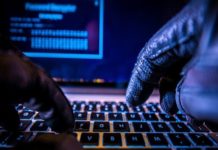
Singapore and Australia have inked an agreement to cooperate closely on cybersecurity, including information sharing, training, and joint exercises to safeguard critical information infrastructure.
The two countries signed a Memorandum of Understanding (MOU) on Friday during the second Singapore-Australia Leaders’ Summit in the city-state, which was witnessed by prime ministers of both nations–Singapore’s Lee Hsien Loong and Australia’s Malcolm Turnbull.
The two-year agreement encompassed collaboration across several key areas, including information exchange on cybersecurity incidents and threats, sharing of best practices to drive cybersecurity innovation, and training in relevant skillsets. Both countries also would participate in joint cybersecurity exercises focused on safeguarding critical information infrastructure and partner on regional cyber capacity buildouts.
The initiative would be led by Singapore’s Cyber Security Agency (CSA), which was responsible for the country’s cybersecurity operations, and marked the sixth of such bilateral agreements including India, France, the Netherlands, UK, and US.
Singapore and Australia also would work to promote “voluntary norms of responsible state behaviour in cyberspace”. To kickstart this, both nations would host an Asean workshop aimed at reducing cyber risks in end-2017.
CSA Chief Executive David Koh said: “Singapore and Australia share close bilateral relations and both countries have a shared vision that cybersecurity is an enabler that supports innovation, economic growth, and social development.
“This MOU shows our commitment to work together to build a secure and resilient cyberspace that will contribute to the progress of both countries,” Koh said.
Turnbull also was in Singapore for the annual Shangri-La Dialogue, which gathered defence ministers from across Asia-Pacific to discuss global and regional security issues.
Singapore last October launched the Asean Cyber Capacity Programme in a bid to galavanise the regions efforts in cybersecurity and fund resources, expertise, and training to help nations build up the necessary infrastructure. These would include workshops, seminars, and conferences as well as consultancy efforts in forming national cybersecurity strategies and related legislations.
The Singapore government in March 2017 also announced plans to set up a cybersecurity command centre to combat growing threats and boost skillsets in cyberdefence. Operating under the purview of the defence ministry and Singapore Armed Forces, the new Defence Cyber Organisation would be manned by some 2,600 soldiers operating within divisions overseeing cybersecurity operations, policy and planning, vulnerability assessment, and cyberdefence.
The move came after the defence ministry suffered a security breach that compromised the personal data of 850 national servicemen and employees. The breach involved the ministry’s I-net system, which supported web-connected computer terminals its employees and national servicemen used for personal online communications or internet browsing.
In addition, two Singapore universities last month suffered APT (advanced persistent threat) attacks, during which hackers specifically targeted government and research data.
By: Eileen Yu
Source: www.zdnet.com

















